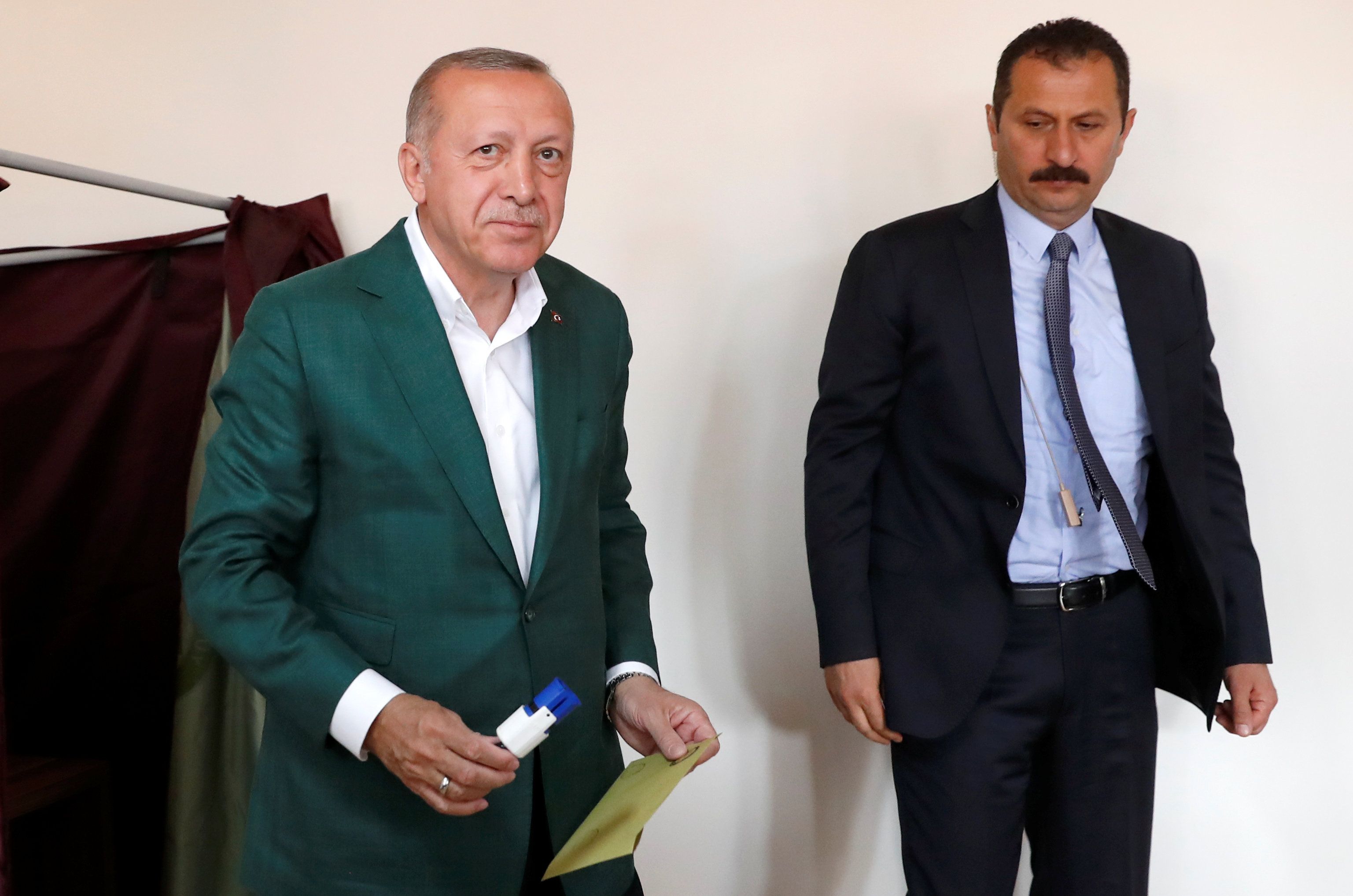April 01, 2019
When Istanbul elected a young, Islamist mayor in 1994, it sent a shockwave through Turkey's secular political establishment and marked the beginning of a sea change in the country's politics. Recep Tayyip Erdogan would use the mayoralty of Turkey's largest city as a springboard to national power, which he has now dominated for 16 years.
But on Sunday, his hometown turned its back on him.
In nationwide municipal elections, the coalition led by Erdogan's ruling AK Party (AKP) lost control of a number of key cities, including the nation's capital, Ankara, as well as several coastal centers.
But the biggest loss was Istanbul, which has been under the control of parties aligned with Erdogan since he was mayor. This is a significant setback for a leader, and a party, who have won every major election in Turkey since 2002.
The election was above all a referendum on Erdogan's increasing authoritarianism and his handling of the economy.
Over the past several years, Erdogan has vastly expanded his power. After a failed coup against his government in 2016, he purged more than 100,000 state employees and threw a number of journalists in jail. In 2017, he narrowly won a controversial referendum that permitted him to increase the power of the presidency, a position he then won in an election last summer.
In recent weeks, Erdogan campaigned furiously for his party, suggesting to Turkish voters that voting for the AKP was a matter of national survival and sovereignty.
But those voters went to the polls amid an economic recession spurred in part by Erdogan's disastrous economic policies: his approach of spouting conspiracy theories and pumping cash into the economy without worrying about inflation spooked foreign investors last year, leading to a currency crisis that affected the broader economy. What's more, urban voters have become increasingly frustrated with poor management and corruption at the local level in cities controlled by the AKP and its affiliates.
Yesterday wasn't all bad news for Erdogan: the AKP still won far more votes than any other party nationally, and it remains strong in the country's rural heartlands. For tens of millions of conservative Turks, Erdogan is still the man who made their voices heard in Turkish politics for the first time. And they still remember fondly the economic boom years over which he presided.
But losing the big cities means losing control over the country's major population centers and economic hubs, and with them a huge source of cash and patronage that can be doled out to supporters and cronies in the future.
Will Erdogan seek to win those cities back, or will he double down on an even more divisive politics now?
Elsewhere in the world of "throw the bums out": Turkey wasn't the only place where voters flipped on those in power this weekend. Across the Black Sea in Ukraine, comedian Volodymyr Zelenskiy, who plays a president on TV, rang up nearly twice the vote share of the actual president, Petro Poroshenko, in the first round of that country's presidential balloting. Zelenskiy and Poroshenko – a chocolate industry tycoon who won the presidency after Ukraine's 2014 uprising – now head to a Comedian vs Candyman runoff on 21 April.
From Your Site Articles
- Erdogan's AK Party Loses Support: World in 60 Seconds - GZERO ... ›
- Erdogan's AK Party Loses Support: World in 60 Seconds - GZERO Media ›
Related Articles Around the Web
More For You
US Rep. Alexandria Ocasio-Cortez (D-NY) speaks during the Munich Security Conference (MSC) in Munich, Germany, on February 13, 2026.
REUTERS/Liesa Johannssen
Vice President JD Vance and Democratic Rep. Alexandria Ocasio-Cortez, both potential 2028 presidential candidates, offered very different foreign policy visions at the Munich Security Conference.
Most Popular
Security in a fragmented world: Cyber deterrence, NATO reform & the future of trusted tech
Feb 14, 2026
- YouTube
In a new Global Stage livestream from the 2026 Munich Security Conference, New York Times White House and national security correspondent David Sanger moderates a conversation with Ian Bremmer (President & Founder, Eurasia Group and GZERO Media), Brad Smith (Vice Chair & President, Microsoft), Benedetta Berti (Secretary General, NATO Parliamentary Assembly), and Wolfgang Dierker (Global Head of Government Affairs, SAP) on how technology and defense are colliding in real time.
- YouTube
At the 2026 Munich Security Conference, NATO Parliamentary Secretary General Benedetta Berti explains why hybrid threats, from undersea cable sabotage to disinformation, energy coercion, and cyberattacks, are no longer isolated incidents but a defining feature of today’s security environment.
- YouTube
In this Quick Take from Munich, Ian Bremmer examines the state of the transatlantic alliance as the 62nd Munich Security Conference concludes.
© 2025 GZERO Media. All Rights Reserved | A Eurasia Group media company.
